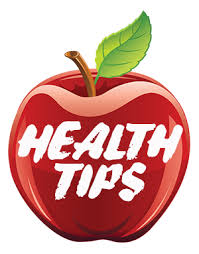When we talk about food, men and women are not very different. But, as in many things, women's dietary needs change completely when they reach puberty.
Adult women usually need to eat fewer calories than men. Does this seem unfair? The reason for this is the composition of the body.
Women tend to be slimmer and have higher fat ratios than their fellow muscular men.
Because muscles consume more calories to keep them more fat, even when you do no activity, men burn more calories.
The average female needs 1600 to 2000 calories a day to maintain a healthy weight, but you may need a little more if you exercise a lot. When we say "exercise a lot" we mean to participate in an intense sports activity for 60 minutes on most days of the week.
If you exercise so stressful that you cannot even speak a few words during exercise, this is the intense level of activity you intend.
The second rule of nutrition for women relates to the need for iron in a quantity more than twice the needs of men. Blood that women lose during menstruation every month usually leads to iron deficiency.
Studies have shown that women who suffer from iron deficiency have to do more to do the same amount of physical activity than women who do not suffer from iron deficiency. Therefore, they feel exhausted and unable to do better athletic performance.
The recommended daily intake of iron for women younger than 50 years is 18 mg. Red meat, low-mercury fish and skinless chicken are great sources of iron, and spinach, legumes, lentils and oats are important alternatives, especially for vegetarians.
To increase the amount of iron absorbed by your body, you can mix it with vitamin C. It is as simple as eating a glass of natural orange juice with oats in the morning or adding a slice of broccoli to your dinner.
Both men and women can benefit from folic acid, which is also associated with its benefits in fighting heart disease and preventing colon cancer. The recommended daily intake of folic acid for men and women is 400 micrograms.
But for pregnant or trying women, the recommended value increases to about 600 micrograms of folic acid. This is because folic acid can significantly reduce the chances of neonatal birth defects.
A new animal study on folic acid suggests that high levels of vitamin B may prevent heart defects caused by alcohol exposure in early pregnancy, a condition known as fetal alcohol syndrome.
Researchers have not yet applied their findings to humans, but we should not underestimate the importance of women getting enough folic acid before and during pregnancy.
There are plenty of morning cereals that can supply 100 percent of your daily folic acid requirement, so you can get the amount you need even before noon.
As for dietary supplements and medications, there are possible side effects with improper use of folic acid. Recent studies suggest that excess doses of folic acid may increase the risk of colon and breast cancer.
But there is no risk of natural increase in this vitamin, the type of food you get such as green leafy vegetables, legumes and orange juice. Just avoid excessive consumption of folic acid from abnormal sources such as pills and supplements.
To learn more about nutrition and how choosing the right foods can improve your quality of life, read more articles on this site.
By Dr Mahad Shah
Ms Productions














No comments:
Post a Comment